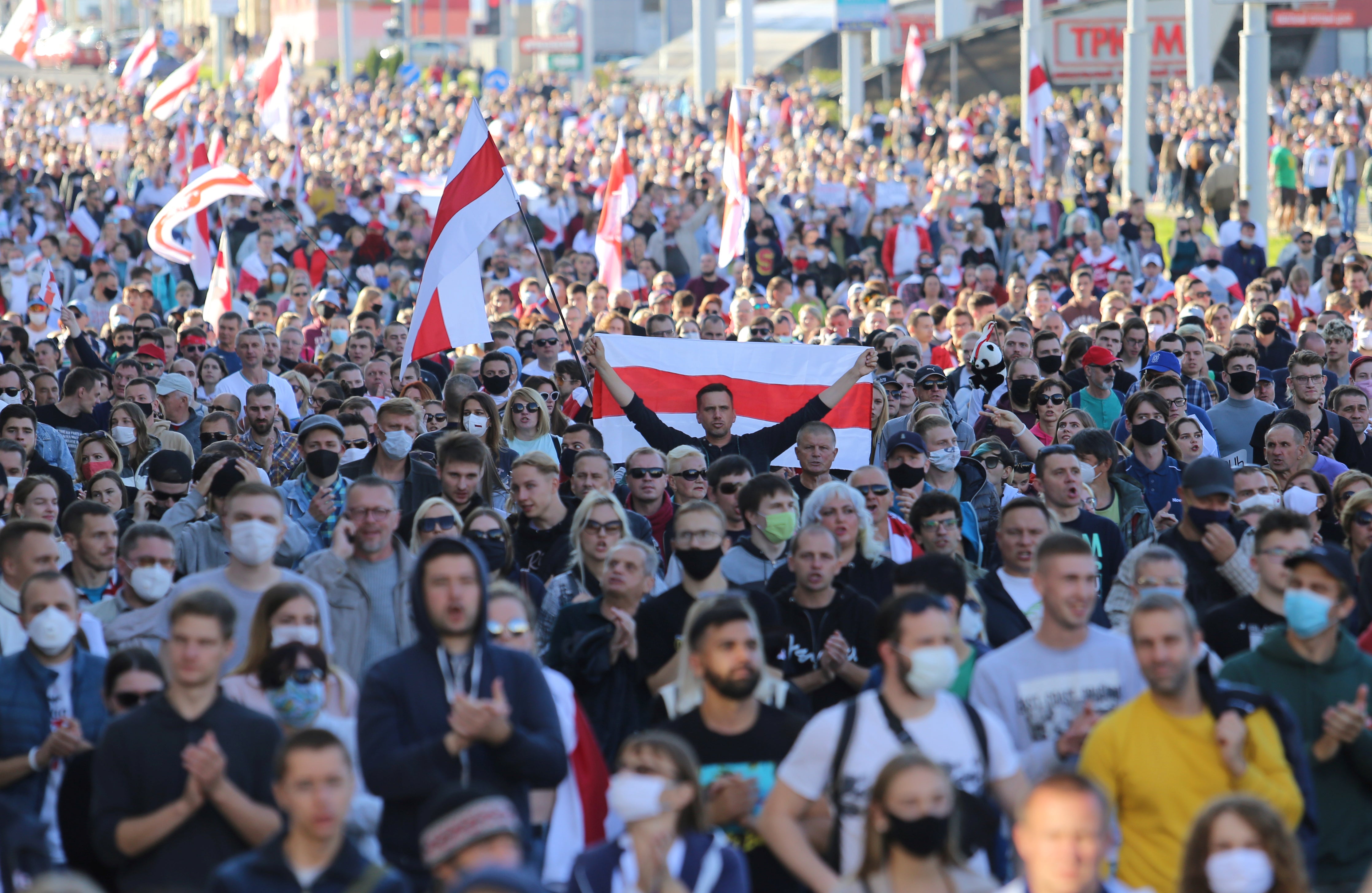We want all Belarusians who fear persecution to know Europe stands by them and will not leave them
Despite warnings, President Lukashenko again used brutal force against demonstrators. It’s given Poland and our EU partners no choice but to react immediately, says Marcin Przydacz


Belarus is in a deep political crisis – the origins of which lie inside the country and is a consequence of political and economic stagnation over the last 30 years. In the case of all authoritarian regimes, democratic protests are a matter of time. The only question remains: when will they happen? And how long will they last until they lead to the fall of the government? The fraudulent presidential elections triggered Belarussian society’s clear answer: it is now.
Poland has always strived to develop good relations with all our neighbours. Together with the European Union, we have lifted sanctions and invested in contacts with the Belarusian administration in a genuine effort to support political reforms and economic development of the country. Despite many warnings, President Lukashenko decided to yet again breach international electoral standards and to use brutal force against peaceful protesters.
It has given us in the EU and in other democratic quarters no choice but to react immediately. Poland remains at the forefront of this reaction with another €12m (£10.9) “Solidarity Plan for Belarus”. We want all those Belarusians who fear persecution to know that Europe stands by them and will not leave them without support. We want those who require medical treatment to know they can receive it in Poland. As part of the Solidarity Plan, Poland granted the opposition a permanent seat in Warsaw. “The Belarussian House” is a safe space allowing them to formulate their future plans, communicate with the Belarussian society and remain visible on the international scene.
As a further mid-term step, the plan includes support for persecuted Belarusians, granting scholarships, facilitation of border crossing procedures, easier access to the Polish labour market, and support for local NGOs and civil society, as well as for independent media outlets. Furthermore, a project called “Poland. Business Harbour”, a comprehensive toolkit designed for IT-specialists, start-ups, small and medium-sized enterprises, as well as other companies, helps to relocate, even temporarily, Belarusian businesses to Poland in order to further develop them.
At the same time, we mobilise our EU partners to take a more proactive approach towards the crisis in Belarus. After a meeting of the European Council, initiated by Poland, a comprehensive review of the EU policy towards Belarus has been started. A package of restrictive measures against individuals responsible for human rights violations remains on the table. We hope it will be agreed without unnecessary delay.
This is what has been done so far. Now it’s time to think in the mid to long term. I think President Lukashenko knows it even better than we do - there is no turning back. The newly awakened Belarusian society will never be the same. The well-educated younger generation, fully aware of their rights and ready to fulfil their dreams, will continue the struggle for a better future. They deserve to wield influence on their country and deserve our real support – no matter how long it takes.
This is why a positive agenda for a future democratic Belarus needs to be developed, including a set of measures enabling a smooth transition to a full-fledged free market economy. Provided democratic changes occur, Belarus and Belarusians should feel that the European Union offers them not only verbal, but also real economic support.
With this aim, last week Poland’s prime minister Mateusz Morawiecki, with the backing of V4 leaders, announced a document called “Economic Plan for Democratic Belarus” which will soon be presented to our European partners. The document presents a set of economic measures which should complement ongoing projects implemented by the EU and other international organisations. We would like it to include, among other things, a comprehensive “stabilisation package”, a special fund dedicated to SMEs, as well as investment in infrastructure and energy security.

Finally, we cannot forget about “the elephant in the room”. Recent history teaches us that in case a crisis occurs, especially in our part of Europe, there is a real risk of one actor choosing a direct or covert intervention over a peaceful political solution. This must not happen. While calling on Minsk to engage in political dialogue with civil society, we must closely follow Moscow’s actions and do anything necessary to prevent any escalation. All involved international actors have to understand that Belarusians must independently decide about their own future. That is why from day one Poland suggested engaging in an OSCE-led mediation. As both Russia and Belarus are members of the organisation, it is, in my opinion, the best option on the table.
40 years ago in Poland, the trade union SOLIDARNOŚĆ (SOLIDARITY) proved that a massive peaceful movement, driven by people seeking freedom and democracy, can achieve the impossible. Even if it takes a long time. But once this process has started, once people have realised that the current social, economic and political situation is not sustainable anymore – like today in Belarus – there is no going back.
Marcin Przydacz, undersecretary of state at the Ministry of Foreign Affairs of the Republic of Poland
Join our commenting forum
Join thought-provoking conversations, follow other Independent readers and see their replies
Comments
Bookmark popover
Removed from bookmarks